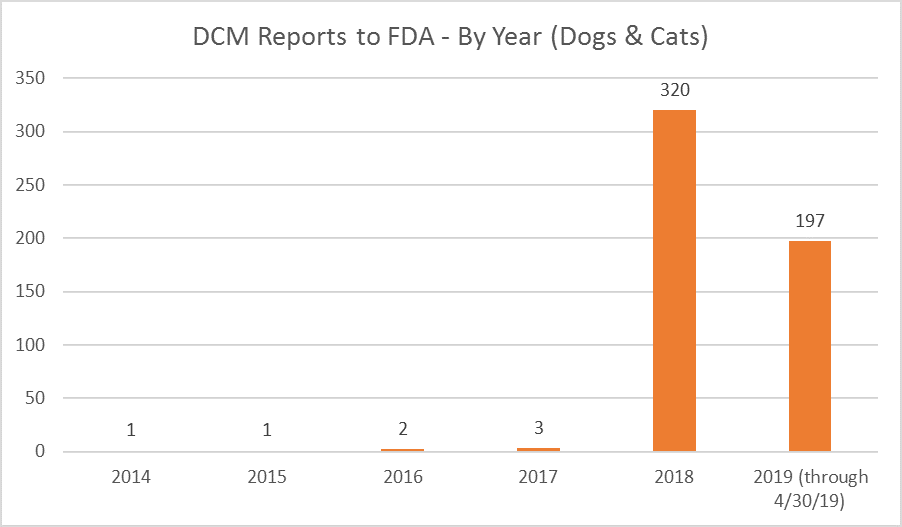Just FWIW, my breed (Irish Wolfhound) is very prone to DCM, it is one of our top three causes of death according to the data we have ( which is pretty good thanks to great health studies our club supports). Many IWs develop atrial fibrillation, which often does not progress to DCM, unlike other breeds, but sometimes it does. When IWs develop DCM, it often progresses more slowly than in other breeds. So we have been aware of heart problems in our breed and have been testing breeding stock for about 30 years.
All of my hounds have have been getting routine echos, usually once at about two years and then often one or two more over their life, if the first one is normal.
When one one of my hounds was diagnosed with DCM in the 1980s at the NC vet school, following a screening ekg at a Specialty show that showed a fib (she had no symptoms at all), the cardiologist suggested supplementing her diet with carnitine, even though she had normal levels of it, because supplementing carnitine in cockers and boxers with DCM had been found to be helpful in some cases. You never hear about carnitine anymore. With later dogs with heart issues, supplementing with CoQ10 was recommended by their cardiologists.
I am happy to say that since the late 1990s, I have not had hounds with cardiac issues, although we continue to test. The cardiologist who is working with the breed club now recommends very large doses of Omega 3s, which I have done and continue.
i have fed different diets, from home-prepared (I pressure-cooked whole chickens and cooked cornbread and other things), to raw (hounds did well on this but when they stopped delivering 180 pounds of meat and bones a week, I lasted only another year trying to source and pick up and containerize that much ), I went to a commercial diet which I did research pretty thoroughly and with little regard for cost. I went with a Purina product because of their research, nutritionists, feeding trials, lack of recalls, and the experience of others. I have been pleased with the results, and have raised a number of litters of puppies on Purina Large Breed Puppy (my breed is very prone to developmental orthopedic problems such as OCD, Carpus Valgus, etc. that are affected by nutrition). The puppies are weaned onto Royal Canin Puppy Mousse (this stuff is so great for weaning! Like crack for puppies!) I feed the adults Purina Pro Plan Sensitive Skin and Stomach, the salmon and rice formula. I dislike the name, as my hounds do not have sensitive skin or stomachs. I have tried the Sport formulas and most hounds did well on this, but the pieces are so tiny that one hound tended to aspirate the pieces.
Two of my hounds have won National Specialties while eating this diet (or another Purina formula) and I recently lost a big male at the age of 11 with a healthy heart, which is excellent for this breed. His daughter is 9 1/2 and in excellent health (knock on wood!). Next week my friend is coming with her ekg machine to do everyone here.
Because my breed is so prone to heart issues including DCM, most breeders and owners feel it is important to do all we can to not increase their chances of heart problems. We just had Dr.Lisa Freeman, a board certified veterinary nutritionist from Tufts, to talk to us about this issue.
Interestingly, she recommended strongly against using any dog food that used lamb as the primary protein source- in addition to the caution about grain-free, legume containing, “boutique” or exotic ingredient dog foods.

 Let’s not lose sight of the scope here.
Let’s not lose sight of the scope here.